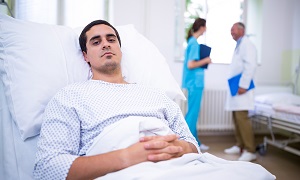Best Doctors in India for Colonoscopy
Best Hospitals in India for Colonoscopy
- City: Bengaluru, India
Hospital Highlights:
- Fortis Hospital Bannerghatta, Bengaluru was established in 2006.
- The hospital is a 276 bedded multi-specialty tertiary care facility.
- The hospital specializes in cutting-edge medical technology and dedicated patient care services.
- The hospital is equipped with state-of-the-art technologies like trans-radial angioplasty, trans-abdominal cardiac surgery, and computerized TKR navigation surgery.
- The hospital provides specialty medical services in cardiology, cardiac surgery, orthopedics, neurology, neuro-surgery, GI, and Minimal Access Surgery (MAS).
- City: Chennai, India
Hospital Highlights:
- Fortis Malar was established in 1992 and was formerly known as Malar Hospital.
- The hospital specializes in cutting-edge medical technology and dedicated patient care services.
- The hospital is multi-specialty, tertiary care facility with 180 beds.
- The hospital offers comprehensive medical care in specialties such as cardiology, cardio-thoracic surgery, neurology, neurosurgery, orthopedics, nephrology, gynecology, gastroenterology, urology, pediatrics, and diabetes.
- City: New Delhi, India
Hospital Highlights:
- Established in 1996, Pushpawati Singhania Research Institute is one of the top hospitals in the NCR region, as well as one of the top facilities in India for gastroenterology. The hospital is one of South Asia’s first institutes in medical and surgical treatment for diseases related to digestion.
- The hospital is equipped with state-of-the art facilities coupled with the latest equipment as well as renowned consultants from various parts of India as well as other parts of the world.
- City: New Delhi, India
Hospital Highlights:
- State-of-the-art technology and devoted healthcare professionals have been brought together under one roof at Venkateshwar Hospital to provide genuine medical care. The hospital’s professionals work together as a team to deliver the best possible treatment to their patients, using the most sophisticated equipment and information technology.
- Venkateshwar Hospital’s mission is to attain global excellence in healthcare by employing evidence-based, ethical clinical practices and cutting-edge technology by a team of highly skilled experts.
- City: New Delhi, India
Hospital Highlights:
- Sir Ganga Ram Hospital, New Delhi is known to provide the latest medical procedures with the latest technology in all of its units.
- The hospital has a team of reputed doctors, nurses, and healthcare professionals that ensure that patients receive quality care at affordable costs.
- Staffed with a team of highly qualified doctors, dedicated nurses, and paramedical and non-medical staff, the hospital aims to lead in healthcare delivery, medical education, training, and research.
- As per the vision of the founder, the hospital also provides free treatment to the economically weaker sections of society.
- Sir Ganga Ram Hospital also provides training to young doctors under the Diplomate in National Board(DNB) program. The DNB program at the hospital was started in 1984 and it is known for currently running the maximum number of DNB specialties in the country. It also has the distinction of having the first bone bank in India.
- City: Kerala, India
Hospital Highlights:
- Established in 2019, Apollo Adlux Hospital is the first Apollo Hospital in Kerala and the 73rd hospital owned by Apollo Group in India. With the state’s most advanced, comprehensive healthcare infrastructure and cutting-edge technologies, Apollo Adlux Hospital stands as an example of medical excellence in Kerala.
- With over 34 multi-specialty departments, the hospital believes in providing the best quality treatment to its patients at affordable rates, ensuring comfort at their difficult times.
- The 300-bed hospital is managed by a team of highly qualified and experienced experts who delivers exceptional hospitality to their patients and treats them with great compassion.
- With its affiliation with the Apollo Hospitals Group, the hospital aims in providing patients with top-notch healthcare services while also serving communities in Kerala.
- The hospital has good railway and road connections, and is conveniently close to Cochin International Airport.
- City: Gurugram, India
Hospital Highlights:
- Situated near DLF Cyber City, Gurugram, Narayana Superspecialty Hospital is one of the top medical facilities in the Delhi NCR region, catering to the needs of the people. Known for its commitment to quality medical care and patient service, the hospital is a state-of-the-art facility with planned and well-equipped sections, which includes a spacious OPD area as well as comfortable patient rooms.
- It is the closest super-specialty hospital from Indira Gandhi International Airport towards Gurugram, and also the nearest super specialty hospital from DLF Cyber City. It is also close to major residential areas in Gurugram.
- It is part of the renowned Narayana Health Group. Established in 2000, by Dr. Devi Shetty, a renowned cardiac surgeon, it has grown to be one fo India’s leading healthcare groups.
- City: Noida, India
Hospital Highlights:
- Fortis Hospital, Noida, stands as one of the oldest and most trusted healthcare institutions in the region, setting a benchmark for comprehensive medical care.
- As the second mega hub hospital in the Fortis Healthcare Group, Fortis Hospital, Noida, upholds a legacy of trust among more than 1.2 million patients. By integrating top-tier professionals with cutting-edge technology, the hospital delivers superior treatment across various medical disciplines.
- Specializing in advanced Neurosciences, Orthopedics, Kidney and Liver Transplant Programmes, Fortis Hospital, Noida has successfully performed over 1,500 transplants, solidifying its reputation as a leader in specialized medical interventions.
COLONOSCOPY
Colonoscopy is a procedure which can enable your doctor to evaluate the insides of your colon (large intestine or large bowel). The colonoscope is a long and flexible tube, which has the thickness of a finger. It has a camera as well as a source of light on its tip.
During this procedure, a long and flexible tube is inserted into the rectum. The camera at the top of the tube allows your doctor to view the insides of your entire colon. If required, polyps or other types of abnormal tissue can also be removed during a colonoscopy. During this procedure, tissue samples can also be taken.
Purpose
Colonoscopy is done for several reasons. Most of them are performed as part of screening programs for diagnosing colon cancer. It can also be done for other reasons, such as for investigating the cause of blood in the stool, diarrhea, abdominal pain or any abnormality found in the colon.
Individuals having a previous history of polyps or colon cancer are usually advised to have colonoscopies regularly. Certain individuals, with a family history of some type of non-colonic cancers or colonic problems that might be associated with colon cancers can also be advised to have periodic colonoscopies since their risks for polyps or colon cancer are greater.
Depending on the degree of the risk for cancer, it is decided how often one should undergo colonoscopy. It is recommended that even healthy people who are at a normal risk for colon cancer undergo it at the age of 50 and every 10 years thereafter to remove colonic polyps.
Preparation
Before the colonoscopy, you need to clean out your colon. Any residue inside will obscure the view of your colon as well as rectum during your exam.
For emptying, your doctor can ask you to:
Follow a special diet the day before your exam
You will not be able to eat solid food the day before your exam. Stick to plain water, tea or coffee and avoid milk, cream, broth, and carbonated beverages. Also avoid red liquids, as it can be mistaken with blood during the procedure. On the night before the exam, it is best if you don’t eat or drink.
Take a laxative
Use an enema kit
Sometimes you may need to use an over-the-counter enema kit, either the night before your colonoscopy or a few hours before the procedure, in order to empty the colon. Since this can only effectively empty the lower colon, it is usually not recommended as the primary way for emptying the colon.
Adjust your medications
At least a week prior to your exam, remind your doctor of your medications, especially if you are having diabetes, high blood pressure or heart problems. If you take medications or supplements containing iron, you need to inform him as well.
Inform your doctor if you take aspirin or such medications that thin the blood. You may need to adjust your dosages or temporarily stop using your medications until the procedure.
During the procedure
You will need to wear a gown during your colonoscopy, but most likely nothing else. Sedation is also recommended sometimes and a mild sedative may be given in the form of a pill. In other cases, the sedatives can be combined with an intravenous pain medication so that any kind of pain or discomfort can be minimized.
The exam will begin with you lying on your side on the exam table, with knees drawn toward your chest. The colonoscope will then be inserted into your rectum by your doctor.
The scope is long enough to reach any length of your colon and it contains a light and a tube that that will allow your doctor to pump air or carbon dioxide into the colon. The air or carbon dioxide inflates the colon, which will provide a much better view of the lining of the colon. When the scope is moved or air is introduced, you might experience a little abdominal cramping or the urge to have a bowel movement.
The tiny video camera on the tip of the colonoscope, will be sending images to an external monitor. This will help your doctor study the inside of your colon. Other instruments can also be inserted through the channel, for taking tissue samples or removing polyps or other areas of abnormal tissue. Around 30 minutes to an hour is usually required for a colonoscopy.
After the procedure
After the exam, it can take around an hour for you to recover from the sedative. You would need someone to take you home, as it would take a full day for the sedative to wear off fully. Remember not to drive or go back to your work.
If a polyp was removed during the colonoscopy, you might be advised to eat a special diet for some time. After the procedure, you might also feel bloated for few hours. Walking can help you relieve any discomfort.
You may also notice some blood with your first bowel movement after your exam. However, this shouldn’t alarm you. If you continue to pass blood or blood clots or if you are having persistent abdominal pain or a fever, you should talk to your doctor.
Risks
Although rare, sometimes a colonoscopy can lead to a few complications which can include:
- Adverse reaction to the sedative used
- A tear in the colon or rectum wall
- Bleeding from the site where the tissue sample or polyp was taken
It is best if you discuss the risks with your doctor, before the procedure.













